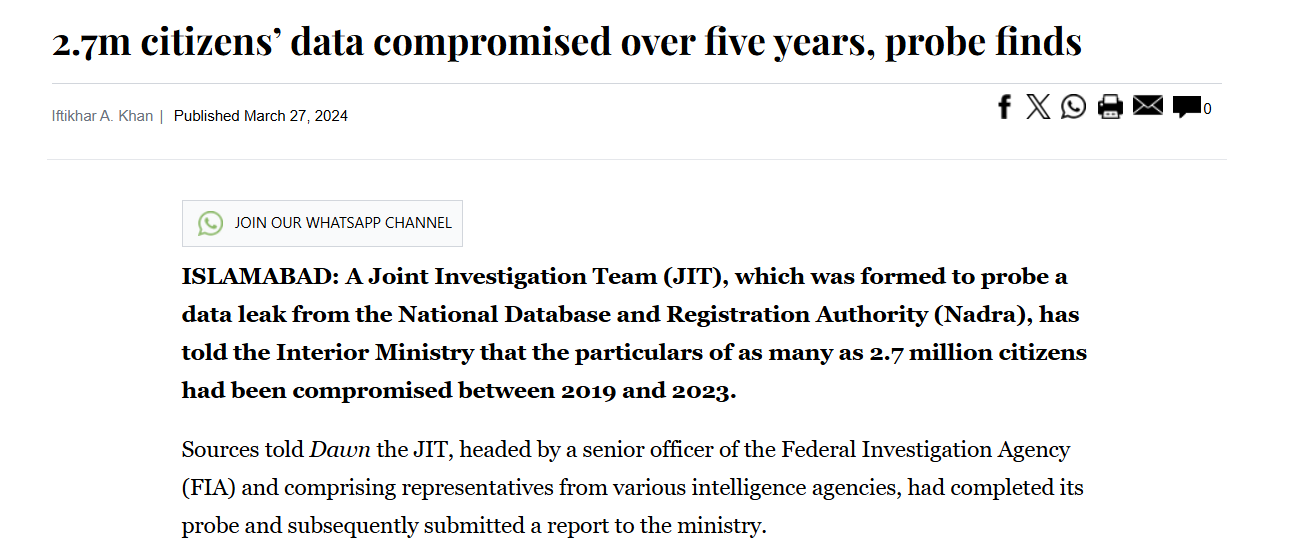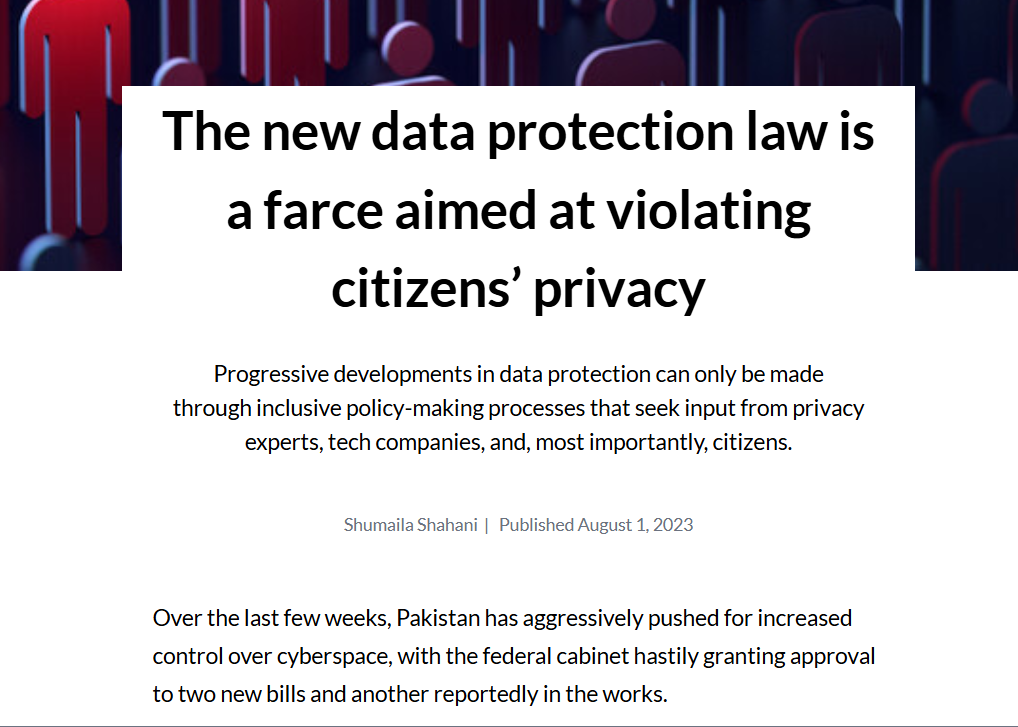In Pakistan, personal data is collected in many ways. It comes from CNIC forms, mobile apps, government websites, and online sign-ups. From 2019 to 2023, sensitive data of 2.7 million people was stolen from NADRA. This data came from cities like Karachi, Multan, and Peshawar. It later showed up on the dark web. Buyers from countries like Argentina and Romania got access to it.

Source: Dawn
More recently, Pakistan’s Cyber Emergency Response Team (PKCERT) shared a new warning. They said that login details of over 180 million Pakistani users were stolen. These included email and password pairs from big sites like Google, Facebook, and banking apps.
How Behavioral Profiling Affects Pakistanis?
In Pakistan, some apps and online services track what users do. This includes what they search, their politics, and what they buy. This data helps create behavioral profiles. In the 2024 elections, many voters said their polling stations changed without notice. Experts believe this change used social media behavior to stop critics from voting. This is an example of micro-targeting.

Image Credit: LinkedIn
Now, political campaigns use this data to show special ads to certain people. These ads are chosen by AI tools to change opinions. Many voters see only what matches their past clicks.
You May Like To Read: Between Truth and Terror: Media Under Siege in Pakistan
AI and Fake News: A Dangerous Mix
AI tools have been used in Pakistan to spread fake news. Bots and fake accounts pushed false stories. These stories made people feel afraid or angry. Some stories targeted elections, while others questioned national safety.
This kind of fake news creates echo chambers. People only hear what they already believe. That makes it harder to know what’s true. Fact-checkers can’t keep up with how fast these stories spread on Facebook or X.
The Power of Social Media Algorithms
Social media sites use algorithms to decide what users see. These systems often show posts that create intense feelings, like fear, shock, or hate. In Pakistan, this means sensational stories get shared more. Even if a story is fake, it can go viral in minutes. Trusted news outlets then struggle to respond.
Many users don’t know how these algorithms work. They think what they see is what’s real. But in truth, the system is guiding what they believe.
Why Pakistan Is at Risk?
Pakistan still has no strong data protection law. The Personal Data Protection Bill 2023 has not passed. This law would create a new office called the National Commission for Personal Data Protection (NCPDP). But many people say the draft is weak. It gives the government too much power to see user data without permission.
The law also allows officials to collect important personal data without consent. Privacy experts say this could lead to government spying, not protection.

Source: Dawn
Pakistan’s Current Law Is Not Enough
Right now, Pakistan’s cyber law—called PECA—only focuses on crimes like hacking or online threats. It doesn’t cover how companies or the government use our data. Pakistan is one of the few big countries without modern data laws like Europe’s GDPR or California’s CCPA.
This means political groups and private companies can take and use data without rules or checks.
What Pakistan Can Learn from Others
Pakistan can learn from laws in other countries. The Data Protection Bill should be fixed. It must stop secret spying, give people access to their own data, and make sure data use is clear. The new Commission must be open and transparent to the public.
You May Like To Read: The Rise of Deepfakes and Synthetic Media (IW4)
What Should Be Done Now?
First, no data should be taken without clear permission. People must be told why their data is needed and how it will be used.
Second, if a company or agency loses data, it must report the breach quickly. They should also be fined for poor security.
Third, schools and colleges in Pakistan should teach digital safety. People need to know how their data can be used or misused.
Fourth, social media companies must check their own systems for bias. They should clearly label political ads and warn users when content is targeted.
Time for Action
Pakistan stands at a critical point. Our data and online systems can help us grow—or hurt us deeply. The dangers are already here: millions of data records stolen, targeted political ads, and social media systems that shape what we believe.
To protect ourselves, we need strong laws. The Data Protection Bill must be improved and passed. The new data office must have fair rules and public checks. People also need to understand their rights. If we don’t act, powerful groups will keep using our data against us.
When every Pakistani knows the value of their private data, they will stop allowing silent control. In a country where trust is low, strong digital rights can rebuild faith. A smart, aware public is Pakistan’s best defense in the digital age.






